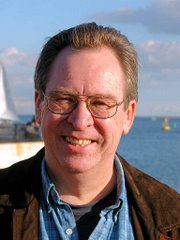In tourism, as in so many other activities, the correct identification of a market segment and the true specialization in attending to this market is of utmost importance. One prime example of this is Playa El Yaque in Margarita.
With the help of Mother Nature, this site was identified as a prime spot to develop one particular market, windsurfing. While the rest of the island’s generic tourism sector, which only with a few exceptions lacks any character at all, is suffering through a severe recession, entrepreneurs and hotel operators in Playa El Yaque have found the going much smoother.
I am convinced that one of the principle challenges of our society today is that of creating new and productive jobs for our younger generations, by choosing the right productive sector and designing strategies that will allow us to develop and take advantage of our competitive advantages.
For Margarita, the industry of rendering services for the elderly presents an interesting option. Whether in tourism, recreation or general care, those living through their "golden years" demand so many services that they represent a real El Dorado, in terms of job creation.
What can Margarita do to explore and capitalize on this opportunity in the name of Venezuela? A lot, I think. Margarita has the people, has good communications and has the perfect natural setting, with calm beaches, absence of hurricanes and a minimum of 280 days of sun per year. Additionally it has the Centro Medico Nueva Esparta (CMNE) and that in my opinion is the ideal place to use as a flagship for the promotion of this new sector.
The CMNE is a hospital with modern and impressive installations located on a hill in La Asuncion, near the Castillo of Santa Rosa. The property currently belongs to Fogade who must soon define what the infrastructure will be used for and who will ultimately own it.
Should CMNE with the help of specialized firms and universities, both foreign and local, be able to truly specialize in the care of the elderly, including medical services, equipment, development of post-graduate courses, nursing schools, recreation and other activities and necessities, I suspect that local authorities will have a very powerful tool with which to attract the required international investment, technology and know-how.
In this respect the value of CMNE would also increase if an annex originally designed to be a Spa was to be finished, thereby making more specialized rooms available. For this purpose perhaps one could use financing packages put together by multilateral agencies and that I believe are already earmarked for tourism infrastructure.
Nothing I have proposed in this article has been said with the intention of suggesting that the other hospitals and clinics on the island of Margarita are not capable of offering similar or better service than the CMNE. Also none of the above implies that CMNE, "photographed" from another angle, cannot continue to provide valuable support, as an excellent general hospital, to local and international tourists and, of course, to the local population as a whole.
Although CMNE could signify in itself a powerful tool in developing the sector, it is no less true that other institutional efforts are required. One of the peculiarities of tourism for the elderly is that it should not be adventure tourism and requires above average confidence in the quality of the services rendered. The creation of a regulatory board with sufficient authority to oversee and intervene in matters of tariffs and quality of the services offered, should therefore be considered.
If Margarita were to have a CMNE specialized in tending to the elderly as well as a dedicated and qualified Regulatory Board, there would be many opportunities for projects that today are outright impossible without a minimum of institutional support. In my particular case, for example, due to my close connections with Nordic countries, I could very well be interested in developing a small resort designed to cater to the elderly of this particular market, including specialized baths, few stair cases or physical obstacles, nearby flowered areas, etc.
The island’s Governor, Irene Saez, is without discussion a person with many of the qualifications necessary to take over the vital role of Ambassador of the Island of Margarita to the world. It would be a great shame to miss this opportunity simply because we have not provided the necessary tools that would enable us to be truly competitive in an increasingly complicated market.
How I would like to see Irene take a flashy promotional video on her next trip abroad, packed with images that show how we have successfully joined forces to make Margarita the world’s foremost place to spend some of those golden years... [and among these, some images of the renamed Hospital Santa Rosa.]
Published in the Daily Journal, Caracas, May 28, 1999








